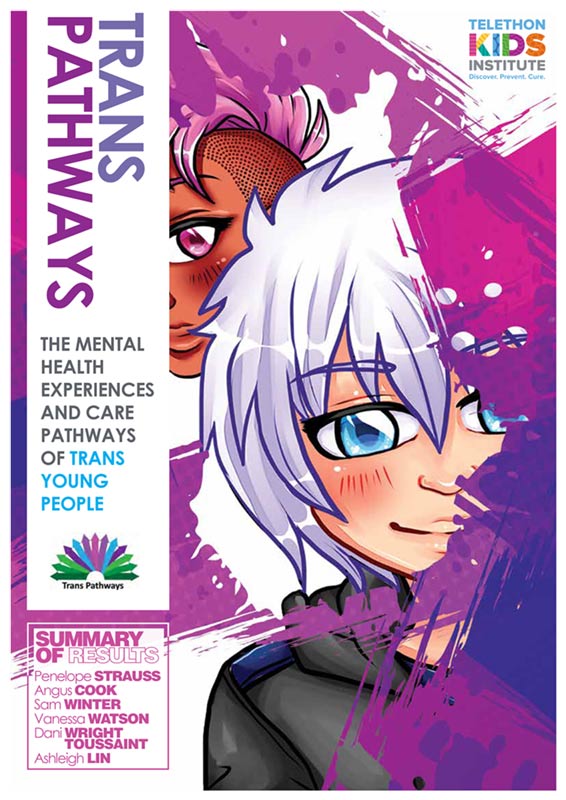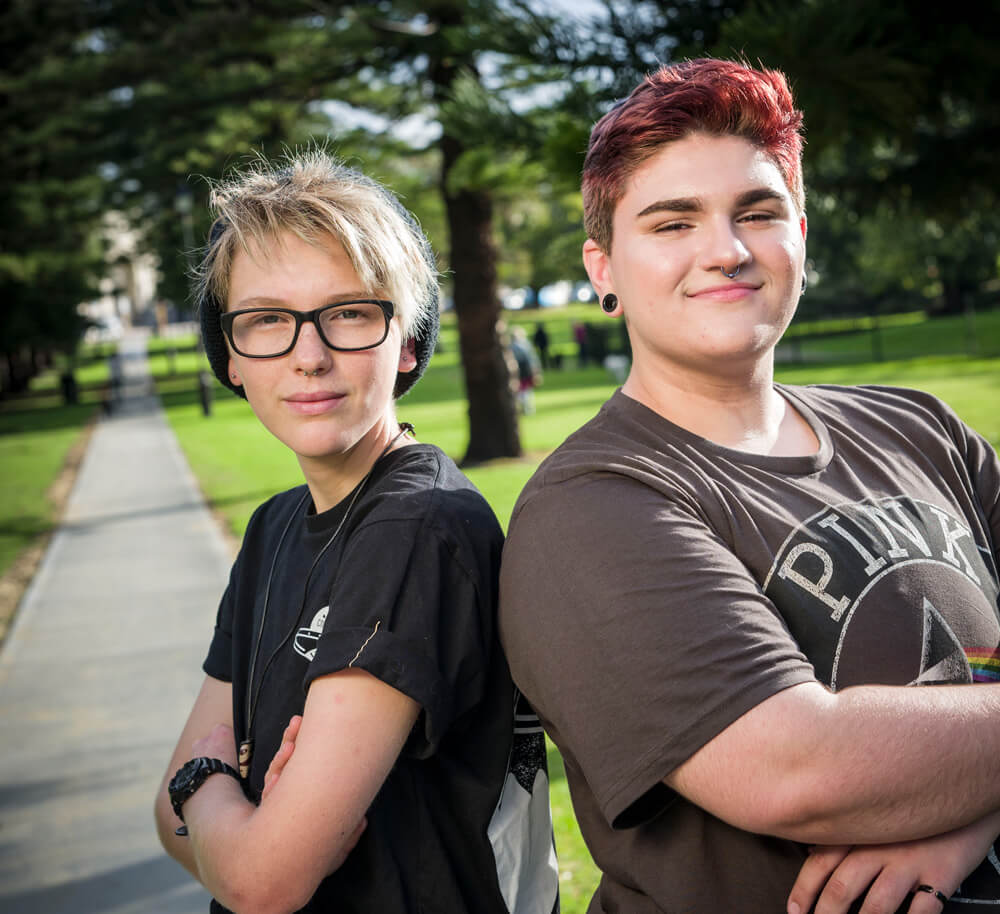Search
Research
Eating and exercise experiences of Australian trans and gender diverse folks: lived experience and stakeholder perspectivesTrans individuals face elevated health risks and socio-environmental challenges, influencing their engagement in health-protective behaviors (e.g. exercise and nutrition). Despite these challenges, there is a significant gap in understanding the specific eating and exercise experiences of Australian trans adults, including barriers to healthy behaviors and healthcare experiences. This study aims to address this gap by exploring these experiences, informing targeted interventions and healthcare practices to improve health outcomes.
Research
Contextualising Experiences of Co-Occurring Mental Ill-Health and Substance Use Among Trans, Non-Binary, and Gender Diverse Young People: Implications for Tailored Harm Reduction ApproachesThough significant research highlights higher rates of mental ill-health and substance use among trans, non-binary and gender diverse (henceforth 'trans') young people, little research has considered patterns, contextual characteristics, and correlates of co-occurring experiences of mental ill-health and substance use among trans young people.

News & Events
The Kids celebrate neurodiverse leader selected for prestigious STEM programA remarkable Institute leader will join a cohort of 25 STEM-qualified women to take part in the prestigious 2024 Women in Leadership Development (WILD) program.

News & Events
Trans young people at high risk of depression and suicideTrans Pathways is the largest ever survey conducted into the mental health of trans young people in Australia.
Research
Gender differences in the experience of psychotic-like experiences and their associated factors: A study of adolescents from the general population"Psychotic-Like Experiences" (PLEs) are common in the general population. While they are usually transient and resolve spontaneously, they can be distressing and signify increased risk for later psychosis or other psychopathology. It is important to investigate factors associated with PLEs which could be targeted to reduce their prevalence and impact. Males and females are known to experience PLEs differently, but any gender differences in the relationships between PLEs and other, potentially targetable, factors are currently unknown.
Research
Computerized cognitive behavioural therapy for gender minority adolescents: Analysis of the real-world implementation of SPARX in New ZealandSPARX is a form of computerized cognitive behavioural therapy in serious game format funded via the Ministry of Health to be freely available in New Zealand. At registration users identify themselves as male, female, transgender or intersex. We aimed to establish whether adolescent transgender users of SPARX, compared to adolescent male and female users, were more likely to have high mental health needs at baseline and were more likely to complete SPARX. We also sought to determine changes in transgender adolescents' depressive symptoms after using SPARX.

News & Events
Trans Pathways breaks down barriers for Trans YouthWhen Trans Pathways ambassador Drew, 17, came out as trans three years ago, the biggest hurdle for him was the availability of services and the time it took to access support.

The Youth Mental Health team is looking for a diverse group of young people to help inform research into mental health in LGBTIQ+ young people.
Research
Psychological Wellbeing Amongst Parents of Trans Children: An in-Depth Qualitative InvestigationResearch has shown that parents of trans children face numerous challenges as they navigate their parenting role, however, little is known about the impact of these challenges on parents’ psychological wellbeing.
Research
Parental Challenges, Facilitators and Needs Associated with Supporting and Accepting Their Trans Child’s GenderParental support is strongly correlated with protective factors for trans youth yet most experience parental rejection or ambivalence regarding their gender. Many parents report a desire to support their child but indicate lack of understanding and support as key barriers. We aimed to develop a nuanced understanding of the challenges and facilitators experienced by Australian parents in developing understanding, support and acceptance of their child’s gender and their needs to do so.
